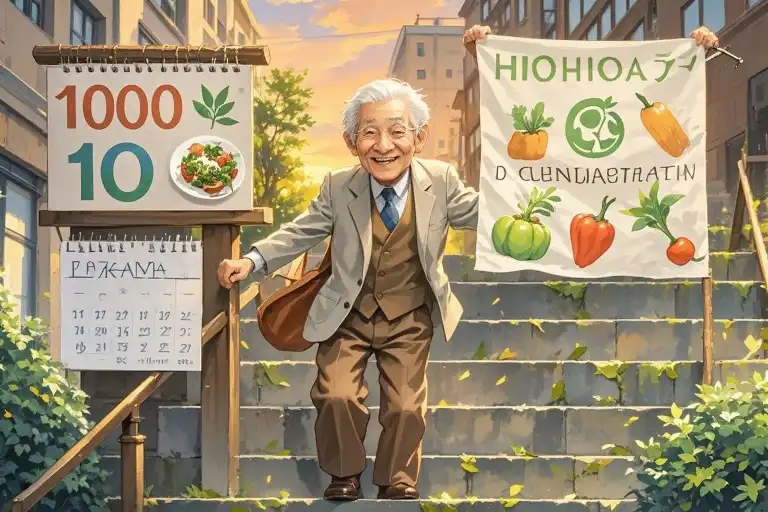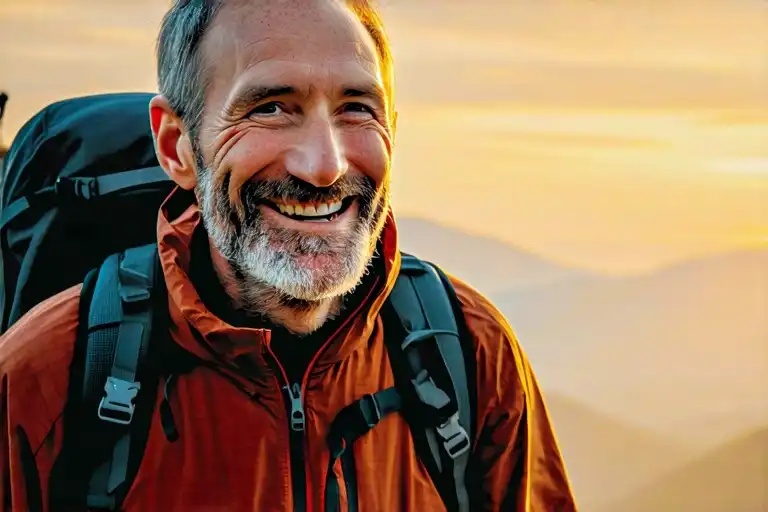You wake up at 101 years old feeling as spry as you did at 70. Your joints don’t creak, your mind stays sharp, and you’re boarding a flight to New York to share life-changing ideas with the world. Sounds like fiction? For Dr. Shigeaki Hinohara, it was just another Tuesday.
Japan’s legendary “forever young” doctor didn’t just talk about longevity—he lived it. At 105, he passed away with a legacy that shattered aging stereotypes. His secret? A set of surprisingly simple daily habits that had nothing to do with kale smoothies or marathon training.
Let’s ditch the boring health lectures and explore what really kept this centenarian thriving—proven rituals you can start today.
Why Your Gym Membership Might Be Wasting Your Time
We’ve been sold the same story for decades: Eat greens, sweat daily, and you’ll live forever. But Dr. Hinohara’s playbook reveals a glaring truth—longevity isn’t about perfect habits. It’s about how you weave vitality into everyday life.
Consider this:
- 97% of Japanese centenarians still cook their own meals (no personal chefs required).
- Adults over 65 make up 34% of Japan’s workforce—and they’re healthier than retirees.
- Dr. Hinohara’s energy at 100 matched most 70-year-olds—without rigid dieting.
“Retirement kills more people than overwork ever did,” he famously said. Let’s unpack his counterintuitive wisdom.
Habit 1: Your Staircase Is the New Gym (Forget the Treadmill)
Dr. Hinohara never “worked out”—he simply moved.
Try this instead of squats:
- Take 2 flights of stairs daily (even if you’re 80!)
- Stretch during Netflix binges (your couch is now a yoga studio)
- Walk phone calls—pace your living room for 10 minutes
Why it works: A 2023 Lancet study found that 4,000 daily steps—gardening, shopping, even cleaning—cut dementia risk by 25%. No gym needed.
Habit 2: Never Retire—But Redefine “Work”
That colleague who won’t quit? She might outlive us all.
Dr. Hinohara saw work as purpose, not punishment:
- At 99, he still treated patients 18 hours a week
- Published his final book at 103
- Lectured globally until 104
Your action plan:
- Turn hobbies into side hustles (sell crafts, mentor newcomers)
- Volunteer 2 hours weekly (walk shelter dogs, read to kids)
- Learn one new skill yearly (Ukulele? Podcasting?)
Real-world proof: Harvard researchers found adults with strong life purpose had 23% lower mortality rates.
Habit 3: Eat Like You’re Always Running Late
Forget calorie counting—Dr. Hinohara’s meals were hilariously simple:
His go-to lunch:
- 1 cup coffee
- 2 tablespoons olive oil
- A glass of milk
- Occasionally…orange juice
No, this isn’t a typo. His philosophy? Eat light to stay nimble.
Modern twist: Try “untimed” eating:
- Skip breakfast if you’re not hungry
- Swap dinner for a hearty soup 3 nights/week
- Keep snacks under 100 calories (almonds > chips)
Habit 4: Laughter Is Your Best Medicine (No Prescription Needed)
Dr. Hinohara kept a toy piano in his office and insisted laughter was “more potent than antibiotics.”
Science backs the fun:
- 15 minutes of deep laughter daily lowers cortisol (stress hormone) by 37% (Johns Hopkins, 2021)
- Cardiologists found chuckle sessions improve blood flow as much as a 20-minute walk (University of Maryland, 2020)
Become a joy scientist:
- Start meetings by sharing a meme
- Download a “joke-a-day” app (his favorite: terrible puns)
- Binge comedy instead of crime dramas—your arteries will thank you
Case study: Okinawan elders gather weekly for “Humor Tea Parties”—sipping matcha while playfully critiquing each other’s golf swings.
Habit 5: Build a 100-Year Friendship Portfolio
The doctor’s secret weapon? A contact list spanning teens to nonagenarians.
Why mixed-age bonds matter:
- Talking to someone 20+ years younger boosts cognitive flexibility (Stanford Aging Study, 2022)
- Seniors with diverse friends have 55% lower inflammation markers (Harvard Social Connectivity Project)
No “old people stuff” allowed:
- Join a Gen Z TikTok dance challenge (embrace the cringe)
- Host a potluck where dishes represent birth decades (1950s meatloaf vs. 2020s avocado toast wars)
- Adopt a “grand-student”—teach your skill to a 25-year-old in exchange for tech lessons
Dr. H’s move: At 101, he started a podcast interviewing centenarian rock climbers and teen robotics champions.
Habit 6: Make Your Brain a “Beginners’ Dojo”
Forget crossword puzzles—real neuroprotection means learning to suck at something new.
Dr. H’s rule: “If it doesn’t embarrass you weekly, you’re not growing.”
Try these brain sparklers:
- Take a terrible painting class (his watercolor cacti looked like grumpy pickles)
- Learn a language…but only slang (impress grandkids with Japanese skateboarder lingo)
- Every birthday, ask: “What would 10-year-old me want to try next?”
Cold, hard data: MRI scans show novice learners’ brains develop 3x more neural connections than routine experts (MIT Neuroplasticity Lab, 2023).
Habit 7: Leave “Tiny Legacies” Daily
The doctor didn’t chase grand achievements—he planted seeds others could grow.
Micro-impact ideas:
- Whisper one encouragement to a stranger (“Your laugh made my day”)
- Write a family recipe in a library book’s margin (future historians will swoon)
- Teach neighborhood kids your weird party trick (world needs more spoon players)
His final lesson: “Don’t aim for immortality. Be the pebble that starts ripples.”
Your Anti-Aging Toolkit Starts Now
As Dr. Hinohara proved, aging isn’t about avoiding death—it’s about outliving society’s expiration dates.
Tonight, before bed:
- Text someone: “What’s the dumbest skill we should learn together?”
- Hide a sticky note with a joke in your fridge
- Replace “I’m too old for this” with “I’m too curious to stop”
Longevity isn’t a marathon—it’s a playground. Time to climb on.
The Bottom Line: Aging Backwards Is a Mindset
Dr. Hinohara’s greatest lesson wasn’t about living longer—it was about redefining what “old” means.
As you finish this article:
- Stand up and stretch (yes, right now)
- Text a friend to plan a walk
- Cancel one “should do” task for something that sparks joy
Your 100-year-old self will thank you.



